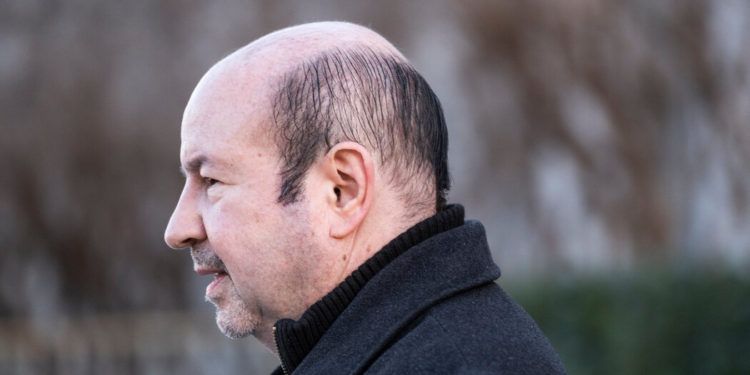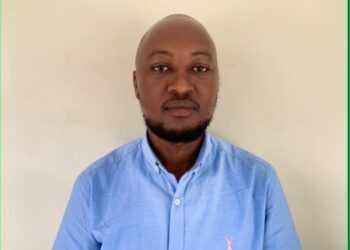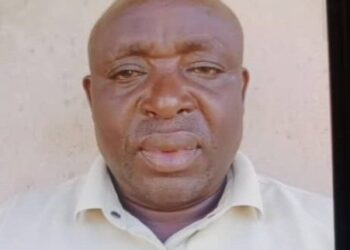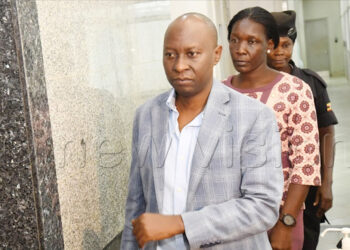By THE NEW YORK TIMES
The climate scientist Michael Mann on Thursday won his defamation lawsuit against Rand Simberg, a former adjunct scholar at the Competitive Enterprise Institute, and Mark Steyn, a contributor to National Review.
The trial transported observers back to 2012, the heyday of the blogosphere and an era of rancorous polemics over the existence of global warming, what the psychology researcher and climate misinformation blogger John Cook called “a feral time.”
The six-member jury announced its unanimous verdict after a four-week trial in District of Columbia Superior Court and one full day of deliberation. They found both Mr. Simberg and Mr. Steyn guilty of defaming Dr. Mann with multiple false statements and awarded the scientist $1 in compensatory damages from each writer.
The jury also found the writers had made their statements with “maliciousness, spite, ill will, vengeance or deliberate intent to harm,” and levied punitive damages of $1,000 against Mr. Simberg and $1 million against Mr. Steyn in order to deter others from doing the same.
“This is a victory for science and it’s a victory for scientists,” Dr. Mann said.
In 2012, Mr. Simberg and Mr. Steyn drew parallels between controversy over Dr. Mann’s research and the scandal around Jerry Sandusky, the former football coach at Pennsylvania State University who was convicted of sexually assaulting children. Dr. Mann was a professor at Penn State at the time.
“It’s constitutionally deliberately hard to win defamation suits in cases involving matters of public concern and prominent public figures,” said RonNell Andersen Jones, a law professor at the University of Utah.
The two sides argued for days about the truth or falsity of the posts, presenting evidence that included unflattering emails between Dr. Mann and colleagues, excerpts from investigations by Penn State and the National Science Foundation that cleared Dr. Mann of academic misconduct, other scientists who testified that Dr. Mann had ruined their reputations, and a detailed but controversial critique of his research methods by a statistician.
Mr. Simberg and Mr. Steyn testified that they sincerely believed what they wrote.
In statements in court at the beginning and again at the end of the trial, Mr. Steyn said he stood “on the truth of every word I wrote about Michael.”
“Inflammatory does not equal defamatory,” said Mr. Simberg’s attorney, Victoria Weatherford, in her closing statement. “Rand is just a guy, just a blogger voicing his truly held opinions on a topic that he believes is important. That is an inconvenient truth for Michael Mann.”
Dr. Mann argued that he lost grant funding following the blog posts and that he had been excluded from at least one research collaboration because his reputation had suffered. The defendants argued that Dr. Mann’s star continued to rise and that he is one of the most successful climate scientists working today.
The presiding judge, Alfred Irving, emphasized to the jury that their job was not to decide whether or not global warming is happening. “I knew that we were walking a fine line from a trial concerning climate change to a trial concerning defamation,” he said earlier while discussing which witnesses to allow.
The story of this lawsuit isn’t over.
In 2021, Judge Irving, along with another D.C. Superior Court judge, decided that the Competitive Enterprise Institute and National Review could not be held liable. The publishers did not meet the bar of “actual malice” imposed on public figures suing for defamation, the judges ruled, meaning employees of the two organizations did not publish Mr. Simberg and Mr. Steyn’s posts knowing them to be false, nor did they have “reckless disregard” for whether the posts were false.
Dr. Mann’s attorneys have indicated that they will appeal this earlier decision. Asked about Competitive Enterprise Institute and National Review, John Williams said, “They’re next.”







Discussion about this post